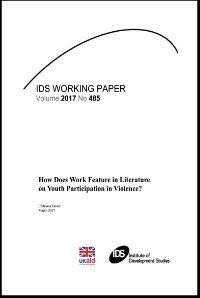By Jillian J. Turanovic and Sonja E. Siennick
Although school violence is on the decline, it remains a significant concern for the general public, policymakers, and researchers. This report commissioned by the National Institute of Justice (NIJ) takes a comprehensive look at the state of the research on school violence and includes additional discussions about research on serious violence and studies that were funded by NIJ’s Comprehensive School Safety Initiative. It is based on an empirical review of 55 meta-analyses and a supplemental review of the methods and findings of 362 recent research studies. The research found that the strongest predictor of school violence perpetration was delinquent/antisocial behavior. Other strong predictors were attention deficit hyperactivity disorder, child maltreatment, peer rejection, and moral disengagement. The reviews identified several other moderately strong predictors of school violence, including deviant peers, callous unemotional traits, narcissism, exposure to domestic violence, agreeableness (inverse association), prosocial behaviors (inverse association), positive school climate (inverse association), and victimization.
Washington, DC: U.S. National Institute of Justice, 2022. 86p.



